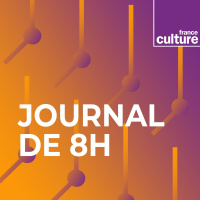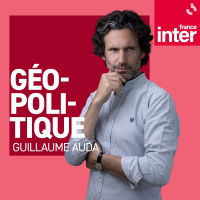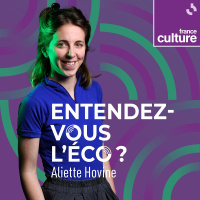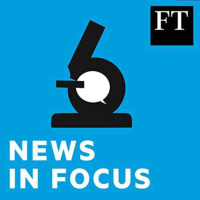Synopsis
Interviews with Economists about their New Books
Episodes
-
Alvin E. Roth, "Who Gets What--and Why: The New Economics of Matchmaking and Market Design" (HMH, 2015)
05/10/2021 Duration: 01h46sIn Who Gets What — and Why: The New Economics of Matchmaking and Market Design (Mariner Books, 2015), Nobel Memorial Prize Winner Alvin Roth explains his pioneering work in the study of matching markets such as kidney exchange, marriage, job placements for new doctors and new professors, and enrollments in schools or colleges. In these markets, “buyers” and “sellers” must each chose the other, and getting the prices right is only a small part of what makes for a successful transaction, if cash is even involved at all. Roth’s work has led the way in taking microeconomics outside the halls of academic theory to become a practical “engineering” tool for policymakers and businesses. In our interview, we range far beyond the examples from the book to discuss the implications of his work for the design of tech’s market-making “platform” businesses like Airbnb, Amazon, Lyft, or Uber, the challenges he faces when countries or people view some kinds of transactions as “repugnant” or morally unacceptable, and the reaso
-
Martin Reeves and Jack Fuller, "The Imagination Machine: How to Spark New Ideas and Create Your Company’s Future" (HBR Press, 2021)
30/09/2021 Duration: 36minToday I talked to Martin Reeves and Jack Fuller about their new book The Imagination Machine: How to Spark New Ideas and Create Your Company’s Future (Harvard Business Review Press, 2021). Since the 1990s, the fade rate (i.e., the inability of companies to stay out ahead of their closest rivals) has gone from sustaining a lead on average for 10 years to now merely a single year. So focusing on offer innovation alone won’t suffice. A company that will survive and thrive must re-imagine really every aspect of the company’s culture and operations to succeed. That move requires an open mind and an inquisitive spirit not averse to surprise but, instead, welcoming of them. Who better than these two authors to take on that task? Reeves is in his own words a “failed” musician and biologist turned businessperson, and Fuller likewise prefers to go “inside” people and organizations to understand how their minds and even their very “souls” perform. This is an episode devoted, in short, to how can a company re-humanize i
-
Joshua Preiss, "Just Work for All: The American Dream in the 21st Century" (Taylor & Francis, 2020)
29/09/2021 Duration: 01h07minThis is a book about the American Dream: how to understand this central principle of American public philosophy, the ways in which it is threatened by a number of winner-take-all economic trends, and how to make it a reality for workers and their families in the 21st century. Integrating political philosophy and the history of political thought with recent work in economics, political science, and sociology, Joshua Preiss' book Just Work for All: The American Dream in the 21st Century (Taylor & Francis, 2020) calls for renewed political and policy commitment to "just work." Such a commitment is essential to combat the negative moral externalities of an economy where the fruits of growth are increasingly claimed by a relatively small portion of the population: slower growth, rising inequality, declining absolute mobility, dying communities, the erosion of social solidarity, lack of faith in political leaders and institutions, exploding debt, ethnic and nationalist backlash, widespread hopelessness, and the rap
-
Maya Hu-Chan, "Saving Face: How to Preserve Dignity and Build Trust" (Berrett-Koehler, 2020)
23/09/2021 Duration: 37minToday I talked to Maya Hu-Chan about her new book Saving Face: How to Preserve Dignity and Build Trust (Berrett-Koehler Publishers, 2020) There are so many sayings that involve the face, but perhaps none is more central to at least Asian culture than “saving face.” That’s because it represents retaining one’s dignity versus being embarrassed or humiliated in front of others. In truth, though, everyone wants nothing more than to be appreciated, as the psychologist William James recognized long ago. In this episode, Maya Hu-Chan puts “faces” into a business context for listeners. In a meeting between Western versus Eastern executives, for instance, how will a long silence be handled? Odds are usually that it’s the Americans who will jump in first, breaking the silence. Given more than 20 years of international business experience, Hu-Chan takes listeners through why regional, company and individual personality differences matter so much. Are you a high-context or low-context person? It’s time to find out by tak
-
Caley Horan, "Insurance Era: Risk, Governance, and the Privatization of Security in Postwar America" (U Chicago Press, 2021)
21/09/2021 Duration: 54minActuarial thinking is everywhere in contemporary America, an often unnoticed byproduct of the postwar insurance industry’s political and economic influence. Calculations of risk permeate our institutions, influencing how we understand and manage crime, education, medicine, finance, and other social issues. In Insurance Era: Risk, Governance, and the Privatization of Security in Postwar America (The University of Chicago Press, 2021), Caley Horan charts the social and economic power of private insurers since 1945, arguing that these institutions’ actuarial practices played a crucial and unexplored role in insinuating the social, political, and economic frameworks of neoliberalism into everyday life. Through a careful analysis of insurance marketing, consumption, investment, and regulation, Horan asserts that postwar America’s obsession with safety and security fueled the exponential expansion of the insurance industry and the growing importance of risk management in other fields. Horan shows that the rise and
-
Emily Erikson, "Trade and Nation: How Companies and Politics Reshaped Economic Thought" (Columbia UP, 2021)
15/09/2021 Duration: 39minHow can ideas from sociology help us understand history and economics? In Trade and Nation: How Companies and Politics Reshaped Economic Thought (Columbia UP, 2021), Emily Erikson, Associate Professor of Sociology at Yale and Academic Director of the Fox International Fellowship, explores the major shift, which occurred during the seventeenth century, in the history and philosophy of economics. The book combines computational methods from sociology with a detailed and close engagement with historical sources and the philosophy of economics. It demonstrates how a key set of merchants proved highly influential in setting the terms of economics, in the context of the specific conditions and institutional settings in England during the period. The book also offers comparative analysis, adding depth to the numerous methods of testing its core hypothesis about what really drove the changes in economics. Clearly written, and deeply engaging, the book is essential reading for scholars in economics and the social scie
-
Andy Hoffman, “Saving the World at Business School (Part 2)” (Open Agenda, 2021)
13/09/2021 Duration: 02h21minSaving the World at Business School (Part 2) is based on an in-depth filmed conversation between Howard Burton and Andy Hoffman, Holcim Professor of Sustainable Enterprise at the University of Michigan’s Ross School of Business and School of Environment and Sustainability. This extensive conversation starts with inspiring insights into how Andy Hoffman became interested in environmental issues when he declined acceptances from graduate school at Harvard and Berkeley and instead worked as a carpenter for several years in Nantucket. Topics include the notions of ‘environmental sustainability’ and ‘big business’ which sometimes seem as incompatible as oil and water and ways to make a synthesis a reality by seriously reconsidering the way we currently conduct public policy and even some deep aspects of our current societal values. Howard Burton is the founder of the Ideas Roadshow, Ideas on Film and host of the Ideas Roadshow Podcast. He can be reached at howard@ideasroadshow.com. Learn more about your ad choices
-
Katy Borner, "Atlas of Forecasts: Modeling and Mapping Desirable Futures" (MIT Press, 2021)
10/09/2021 Duration: 46minTo envision and create the futures we want, society needs an appropriate understanding of the likely impact of alternative actions. Data models and visualizations offer a way to understand and intelligently manage complex, interlinked systems in science and technology, education, and policymaking. Atlas of Forecasts: Modeling and Mapping Desirable Futures (MIT Press, 2021), from the creator of Atlas of Science and Atlas of Knowledge, shows how we can use data to predict, communicate, and ultimately attain desirable futures. Using advanced data visualizations to introduce different types of computational models, Atlas of Forecasts demonstrates how models can inform effective decision-making in education, science, technology, and policymaking. The models and maps presented aim to help anyone understand key processes and outcomes of complex systems dynamics, including which human skills are needed in an artificial intelligence–empowered economy; what progress in science and technology is likely to be made; and h
-
Andy Hoffman “Saving the World at Business School (Part 1)” (Open Agenda, 2021)
10/09/2021 Duration: 01h25minSaving the World at Business School (Part 1) is based on an in-depth filmed conversation between Howard Burton and Andy Hoffman, Holcim Professor of Sustainable Enterprise at the University of Michigan’s Ross School of Business and School of Environment and Sustainability. This extensive conversation starts with inspiring insights into how Andy Hoffman became interested in environmental issues when he declined acceptances from graduate school at Harvard and Berkeley and instead worked as a carpenter for several years in Nantucket. Topics include the notions of ‘environmental sustainability’ and ‘big business’ which sometimes seem as incompatible as oil and water and ways to make a synthesis a reality by seriously reconsidering the way we currently conduct public policy and even some deep aspects of our current societal values. Howard Burton is the founder of the Ideas Roadshow, Ideas on Film and host of the Ideas Roadshow Podcast. He can be reached at howard@ideasroadshow.com. Learn more about your ad choices
-
Juha Kaakinen: Homelessness, a Solvable Problem
08/09/2021 Duration: 01h58minHoward speaks to Juha Kaakinen, CEO of Y-Foundation, a global leader in implementing the "Housing First principle" and a clear example of how genuine progress can be made in concretely addressing homelessness. Howard Burton is the founder of Ideas Roadshow, Ideas on Film and host of the Ideas Roadshow Podcast. He can be reached at howard@ideasroadshow.com. Learn more about your ad choices. Visit megaphone.fm/adchoices Support our show by becoming a premium member! https://newbooksnetwork.supportingcast.fm/economics
-
Ken Meter, "Building Community Food Webs" (Island Press, 2021)
08/09/2021 Duration: 01h02minOur current food system has decimated rural communities and confined the choices of urban consumers. Even while America continues to ramp up farm production to astounding levels, net farm income is now lower than at the onset of the Great Depression, and one out of every eight Americans faces hunger. But a healthier and more equitable food system is possible. In Building Community Food Webs (Island Press, 2021), Ken Meter shows how grassroots food and farming leaders across the U.S. are tackling these challenges by constructing civic networks. Overturning extractive economic structures, these inspired leaders are engaging low-income residents, farmers, and local organizations in their quest to build stronger communities.. Ken Meter is one of the most experienced food system analysts in the U.S., holding over 50 years of experience in community capacity building. Meter is co–author of a toolkit for measuring economic impacts of local food development and co-editor of Sustainable Food System Assessment: Lessons
-
Gregory Werden, "The Foundations of Antitrust: Events, Ideas, and Doctrines" (Carolina Academic Press, 2020)
07/09/2021 Duration: 01h11minFew revolutions in economics have been as under-covered in general literature as the emergence and development of competition theory and policymaking. Political threats to break up the tech giants or restrain Russian gas pipelines make the headlines while academic lawyers churn out textbooks on 130 years of precedent and practicing lawyers test its limits. What has been missing is an up-to-date, general legislative and intellectual history of how and why politicians, lawyers, and economists in capitalist democracies decided they needed to step in and correct the market. Why did this happen first in the US in that crucial quarter-century preceding the first world war? The Foundations of Antitrust: Events, Ideas, and Doctrines by Gregory Werden (Carolina Academic Press, 2020) fills that gap, examines the overlaps between legal innovation and common law, and busts a few myths en route. From 1977 until his retirement in 2019, Gregory Werden worked in the Antitrust Division of the US Department of Justice – most r
-
Lindsay Naylor, "Fair Trade Rebels: Coffee Production and Struggles for Autonomy in Chiapas" (U Minnesota Press, 2019)
06/09/2021 Duration: 49minFair trade certified coffee is now commonly found on the supermarket shelves of the Global North, but the connections between the consumer and producer of fair trade coffee are far from simple. Lindsay Naylor’s book, Fair Trade Rebels: Coffee Production and Struggles for Autonomy in Chiapas (University of Minnesota Press, 2019), examines the contested politics of fair trade coffee production in the indigenous highlands of Mexico. Using theoretical approaches based in diverse economies scholarship and decolonial thinking, Naylor highlights the significance of the multiple, diverse economic practices and relations that campesinos/as use in their struggle to form more dignified livelihoods. While she critiques the narratives of economic development and problematic understandings of solidarity that underpin many fair trade discourses, Naylor’s empirically grounded research produces a nuanced analysis of the possibilities and limitations inherent in contemporary fair trade coffee production. Rather than understand
-
Hans Gersbach, "Redesigning Democracy: More Ideas for Better Rules" (Springer, 2018)
03/09/2021 Duration: 43minFor three decades, Hans Gersbach has been using economic analysis and tools to explain and improve political behaviour. His academic career began just as history was supposed to be ending with the victory of liberal democracy. Today, as a string of books argue – most recently Twilight of Democracy by Anne Applebaum (Penguin, 2020) and Our Own Worst Enemy by Tom Nichols (OUP USA, 2021) – things look rather different. Gersbach’s mission to optimise democracy and reduce the disenchantment that feeds extremism has never been more salient. His Redesigning Democracy: More Ideas for Better Rules (Springer, 2017) may be four years old but he has continued publishing papers developing the book’s ideas on political contracts, re-election thresholds, optimal term lengths, pendular voting, "Catenarian" fiscal discipline, and even incentive pay for policymakers. Another book is only a matter of time. Hans Gersbach holds the Chair of Macroeconomics, Innovation and Policy at ETH Zurich and previously taught at Heidelberg a
-
Jon Lukomnik and James P. Hawley, "Moving Beyond Modern Portfolio Theory: Investing That Matters" (Routledge, 2021)
03/09/2021 Duration: 41minMoving Beyond Modern Portfolio Theory: Investing that Matters (Routledge, 2021) tells the story of how Modern Portfolio Theory (MPT) revolutionized the investing world and the real economy, but is now showing its age. MPT has no mechanism to understand its impacts on the environmental, social and financial systems, nor any tools for investors to mitigate the havoc that systemic risks can wreck on their portfolios. It's time for MPT to evolve. The authors, Jon Lukomnik and James Hawley, propose a new imperative to improve finance's ability to fulfil its twin main purposes: providing adequate returns to individuals and directing capital to where it is needed in the economy. They show how some of the largest investors in the world focus not on picking stocks, but on mitigating systemic risks, such as climate change, so as to improve the risk/return profile of the market as a whole. The author's "Investing that matters" embraces MPT's focus on diversification and risk adjusted return, but understands them in the
-
Ann Latham, "The Power of Clarity: Unleash the True Potential of Workplace Productivity, Confidence, and Empowerment" (Bloomsbury, 2021)
02/09/2021 Duration: 36minToday I talked to Ann Latham about her new book The Power of Clarity: Unleash the True Potential of Workplace Productivity, Confidence, and Empowerment (Bloomsbury, 2021). On the factory floor, the processes have been honed for efficiency. Enter the company’s headquarters, however, and the office functions in a way that brings to mind two of Anne’s favorite terms: “kitchen sink syndrome” and “hand-me-down ambiguity.” In other words, things move slowly and endless reviews and overthinking or failing to think at all are the two modes that seem to predominate in the workplace. What’s the solution? Recognize that meetings need to make a difference to justify the 25% or more of people’s workdays that they swallow up. Who should be there? Those who can, should and will actually input on the decision to be made, and those who can authorize the decision. Everybody else, not so much. For anybody who can’t stand the quagmire at work, Ann’s your person. Ann Latham has consulted for major global companies like Boeing and
-
Austin Dean, "China and the End of Global Silver, 1873–1937" (Cornell UP, 2020)
01/09/2021 Duration: 01h27minIn the late nineteenth century, as much of the world adopted some variant of the gold standard, China remained the most populous country still using silver. Yet China had no unified national currency; there was not one monetary standard but many. Silver coins circulated alongside chunks of silver and every transaction became an "encounter of wits." China and the End of Global Silver, 1873–1937 (Cornell UP, 2020) focuses on how officials, policy makers, bankers, merchants, academics, and journalists in China and around the world answered a simple question: how should China change its monetary system? Far from a narrow, technical issue, Chinese monetary reform is a dramatic story full of political revolutions, economic depressions, chance, and contingency. As different governments in China attempted to create a unified monetary standard in the late nineteenth and early twentieth century, the United States, England, and Japan tried to shape the direction of Chinese monetary reform for their own benefit. Austin
-
Tanya Jakimow, "Susceptibility in Development: Micropolitics of Local Development in India and Indonesia" (Oxford UP, 2020)
01/09/2021 Duration: 38minTanya Jakimow's book Susceptibility in Development: Micropolitics of Local Development in India and Indonesia (Oxford UP, 2020) offers a novel approach to understanding power in development through theories of affect and emotion. Development agents - people tasked with designing or delivering development - are susceptible to being affected in ways that may derail or threaten their 'sense of self'. This susceptibility is in direct relation to the capacity of others to engender feelings in development agents: an overlooked form of power. Susceptibility in Development proposes a new analytical framework to enable new readings of power relations and their consequences for development. Susceptibility in Development offers a comparative ethnography of two types of local development agents: volunteers in a community development program in Medan, Indonesia, and women municipal councillors in Dehradun, India. Ethnographic accounts that are attentive to the emotions and affects engendered in encounters between individu
-
Josephine Ensign, "Skid Road: On the Frontier of Health and Homelessness in an American City" (Johns Hopkins UP, 2021)
30/08/2021 Duration: 41minHome to over 730,000 people, with close to four million people living in the metropolitan area, Seattle has the third-highest homeless population in the United States. In 2018, an estimated 8,600 homeless people lived in the city, a figure that does not include the significant number of "hidden" homeless people doubled up with friends or living in and out of cheap hotels. In Skid Road: On the Frontier of Health and Homelessness in an American City (Johns Hopkins UP, 2021), Josephine Ensign digs through layers of Seattle history—past its leaders and prominent citizens, respectable or not—to reveal the stories of overlooked and long-silenced people who live on the margins of society. Stephen Pimpare is director of the Public Service & Nonprofit Leadership program and Faculty Fellow at the Carsey School of Public Policy at the University of New Hampshire. Learn more about your ad choices. Visit megaphone.fm/adchoices Support our show by becoming a premium member! https://newbooksnetwork.supportingcast.fm/econom
-
Andrew Flachs, "Cultivating Knowledge: Biotechnology, Sustainability, and the Human Cost of Cotton Capitalism in India" (U Arizona Press, 2019)
27/08/2021 Duration: 01h24sCultivating Knowledge: Biotechnology, Sustainability and the Human Cost of Cotton Capitalism in India by Andrew Flachs (University of Arizona Press, 2019) tells a story of how farmers in rural south India evaluate agricultural success through shifting calculations of social meaning, performance, and economic aspirations. Navigating multiple avenues of incentives, Dr. Flachs moves beyond the hidden links of consumption and production to concerns about how people engage with global change on the level of the farm field. By choosing to plant either genetically modified or certified organic cotton seeds, farmers risk their livelihoods by participating in diverging courses of sustainable agriculture. The farmer’s choice of seed reflects a performance of transformation regarding knowledge and agrarian sensibilities within rapidly changing socioeconomic and material realities that are influenced by both a colonial past and the neoliberal present. As Andrew put it, “a seed is a choice that cannot be taken back.(3)” L














